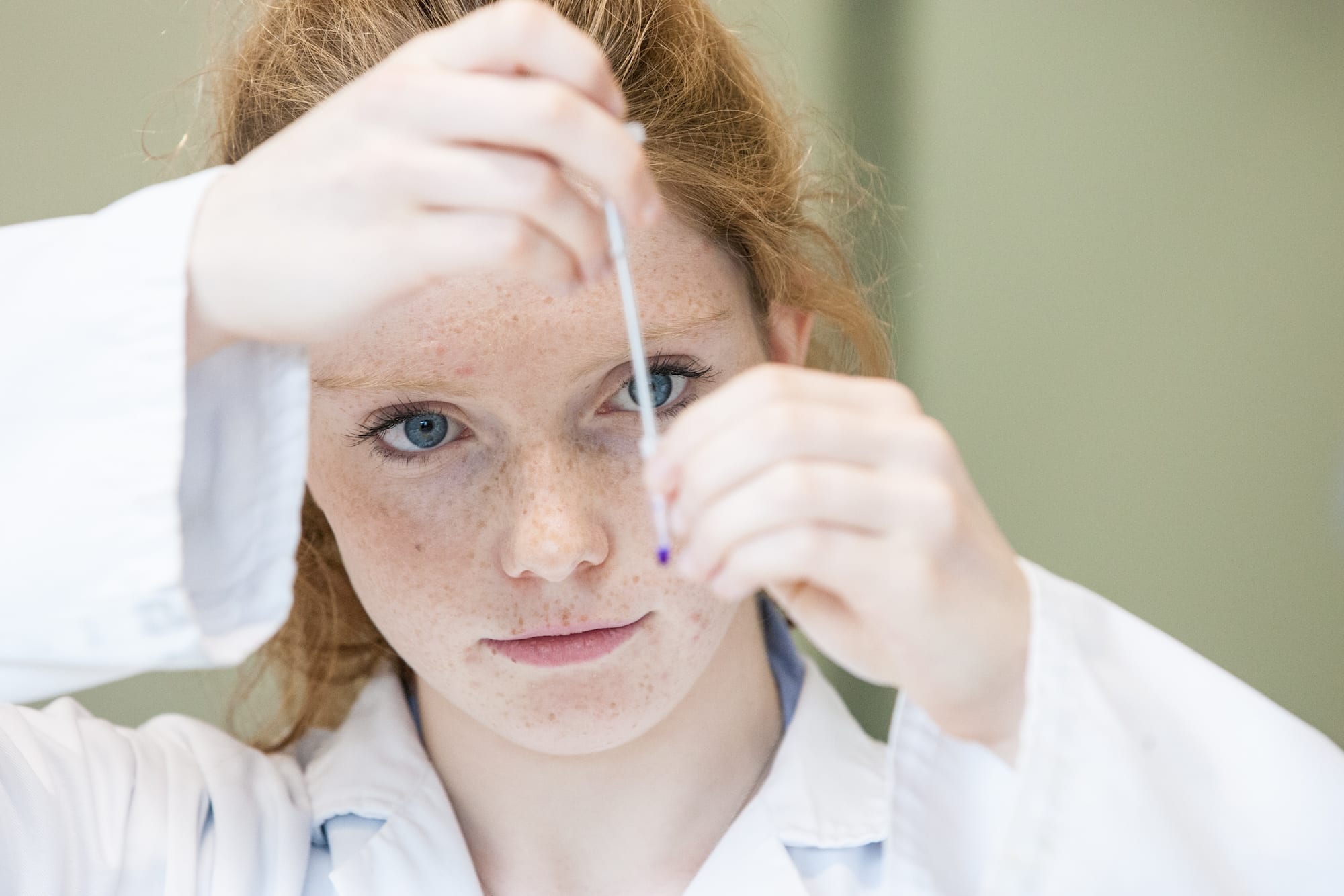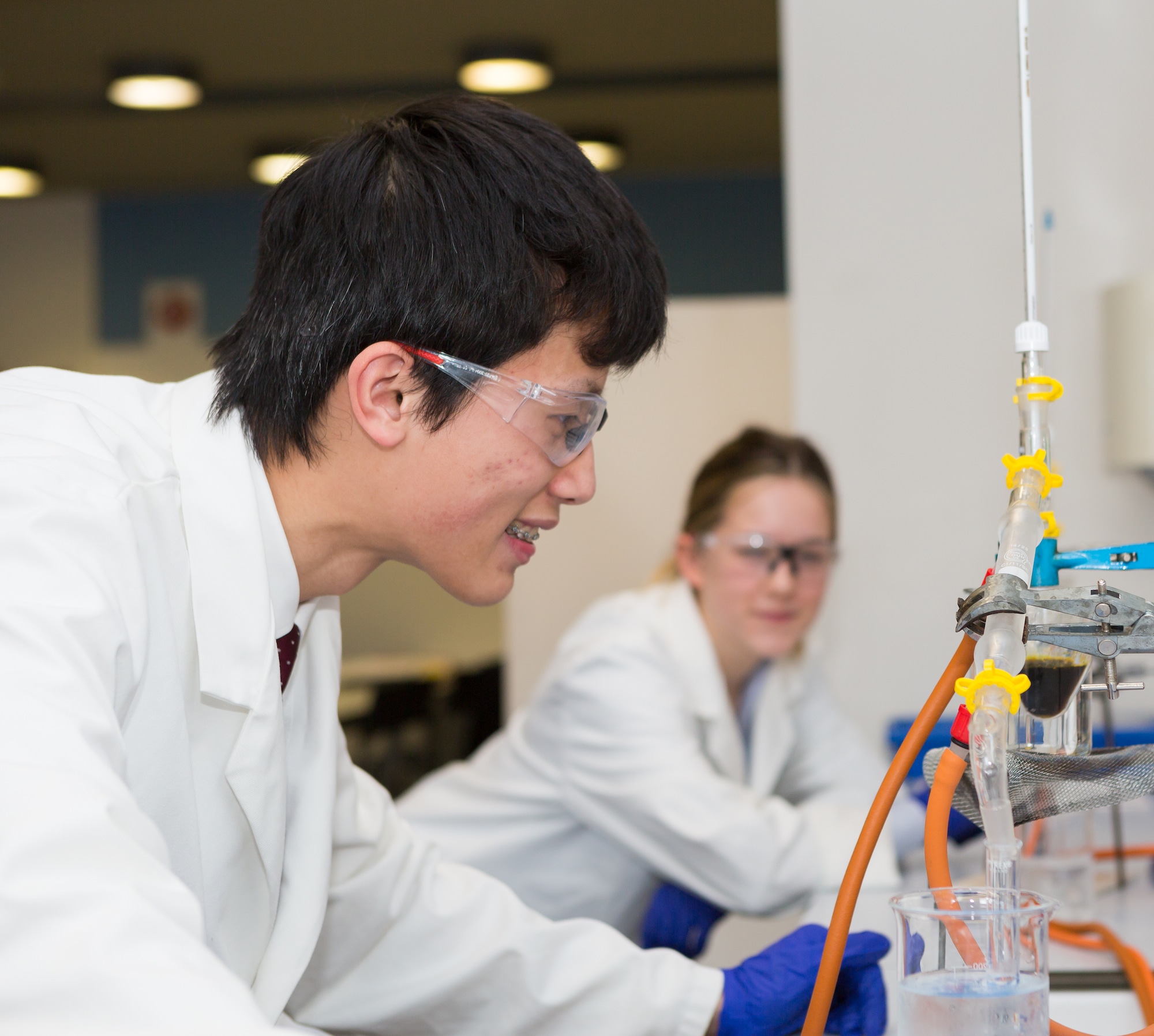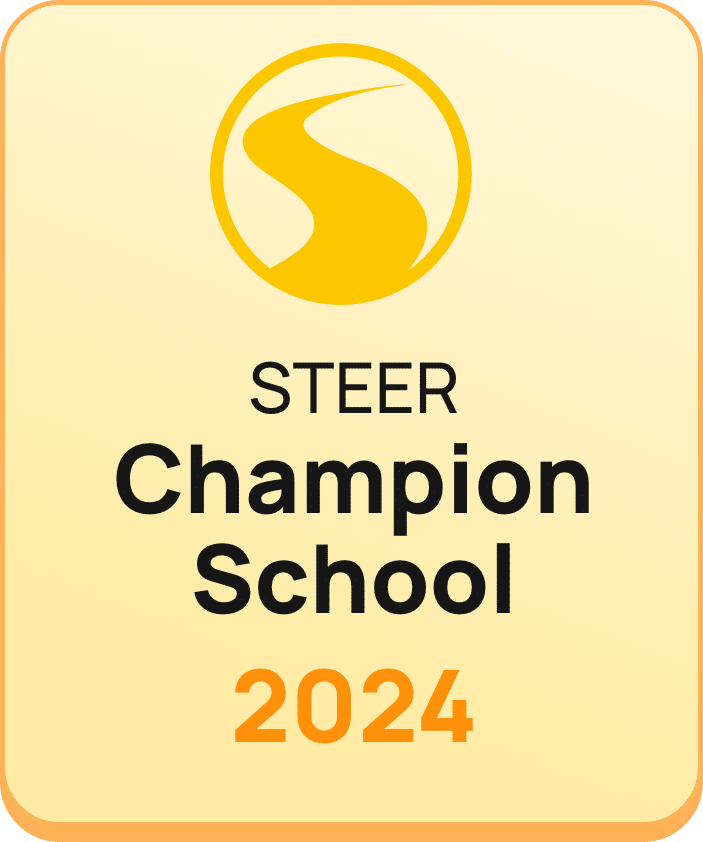As a department, we are committed to ensuring that Chemistry is both accessible and enjoyable for all students, regardless of their starting point. Our curriculum is carefully designed to help pupils develop a wide range of transferable skills that will support them not only in further study but also in their future careers. Central to this is the development of critical thinking, problem-solving, and independent learning, rather than relying solely on memorisation.
At the same time, we recognise the importance of mastering factual content. To support this, pupils are provided with access to modern learning technologies – including a variety of educational apps such as Classkick, Blooket, and Carousel Learning – which are used alongside more traditional teaching methods. This combination ensures that pupils can discover and refine their own preferred approaches to learning.
Practical work is a cornerstone of our teaching. Each year, students take part in age-appropriate experiments that not only reinforce theoretical learning but also promote confidence, curiosity, and enjoyment of science. These activities are conducted in a safe environment and encourage pupils to work collaboratively, developing vital skills in communication, teamwork, and resilience.
The Edexcel International GCSE (IGCSE) Chemistry course is delivered over the three years of the Lower School. At the end of Year 9, pupils make their subject choices as part of the options process, with the opportunity to continue with Chemistry within the school’s wider STEM offering.
The course is linear, with final examinations taken at the end of Year 11. Chemistry is studied through four main areas:
-
Principles of Chemistry
-
Physical Chemistry
-
Inorganic Chemistry
-
Organic Chemistry
The IGCSE in Chemistry provides pupils with a strong foundation of knowledge and skills, offering excellent preparation for those who wish to progress to A Level Chemistry and further study in the sciences.
The AQA A Level Chemistry course is taught over two years and provides the foundation for an engaging and challenging Sixth Form programme, designed to both inspire and prepare students for future study. The specification has been developed with input from teachers and universities to ensure it motivates students and caters to a wide range of interests and aspirations.
A strong emphasis is placed on practical work and experimental skills, which are closely integrated throughout the course. Students complete a minimum of 12 compulsory practicals, developing confidence and competence in a variety of techniques. While practical work is not examined directly, questions based on these activities form part of the written assessments.
Year 12 (Lower Sixth)
Students are introduced to the key concepts that underpin Chemistry at A Level and beyond. Topics include:
-
Atomic structure and bonding
-
Energetics and kinetics (with a focus on mathematical applications)
-
The chemistry of Group 2 and Group 7 elements
-
Organic chemistry, including reaction mechanisms
Year 13 (Upper Sixth)
This builds on the foundations of Year 12 with more advanced content, such as:
-
Thermodynamics, including Born-Haber cycles and entropy changes
-
Advanced redox reactions and electrochemical cells
-
Acids, bases, titrations, and buffer solutions
-
The chemistry of transition metals and reactions of ions in aqueous solution
-
Advanced organic chemistry, including nitrogen compounds and organic analysis
Assessment
Students sit three written examinations at the end of the two-year course:
-
Paper 1 – Inorganic and Physical Chemistry
-
Paper 2 – Organic and Physical Chemistry
-
Paper 3 – Synoptic assessment, including questions on practical skills
This structure ensures that pupils not only gain a deep understanding of chemical principles but also develop the analytical, mathematical, and practical skills that are highly valued in higher education and a wide range of careers.
Trips and Events
Depending on dates, in recent years there have been a number of trips to “Science: Live” and “Science in Action” events in London and, for the first time in a number of years, an overseas science trip to Florida is planned for Easter 2024.
Chemistry students enter the RSC Chemistry Challenge (Year 10) and the Cambridge Chemistry Challenge Challenge (Sixth Form) and the UK Chemistry Olympiad (Sixth Form).
Beyond School
An A Level in Chemistry leads to a number of related Undergraduate programmes. In recent years, for example, A Level Chemists have gone on to study: Chemistry, Chemical Engineering, Biochemistry, Medicine, Material & Science Engineering, and Veterinary Science.
An A Level in Chemistry also facilitates access to a range of unrelated degree options. Recent A Level Chemists have pursued undergraduate degree programmes in, for example: Business, Economics, Classical Studies, General Engineering, Marine Biology, Environmental Geoscience, Ecology & Conservation, Data Science, Biomedical Engineering, Psychology and Aerospace Engineering.
Head of Chemistry
Enda Daly
Teacher of Chemistry






















